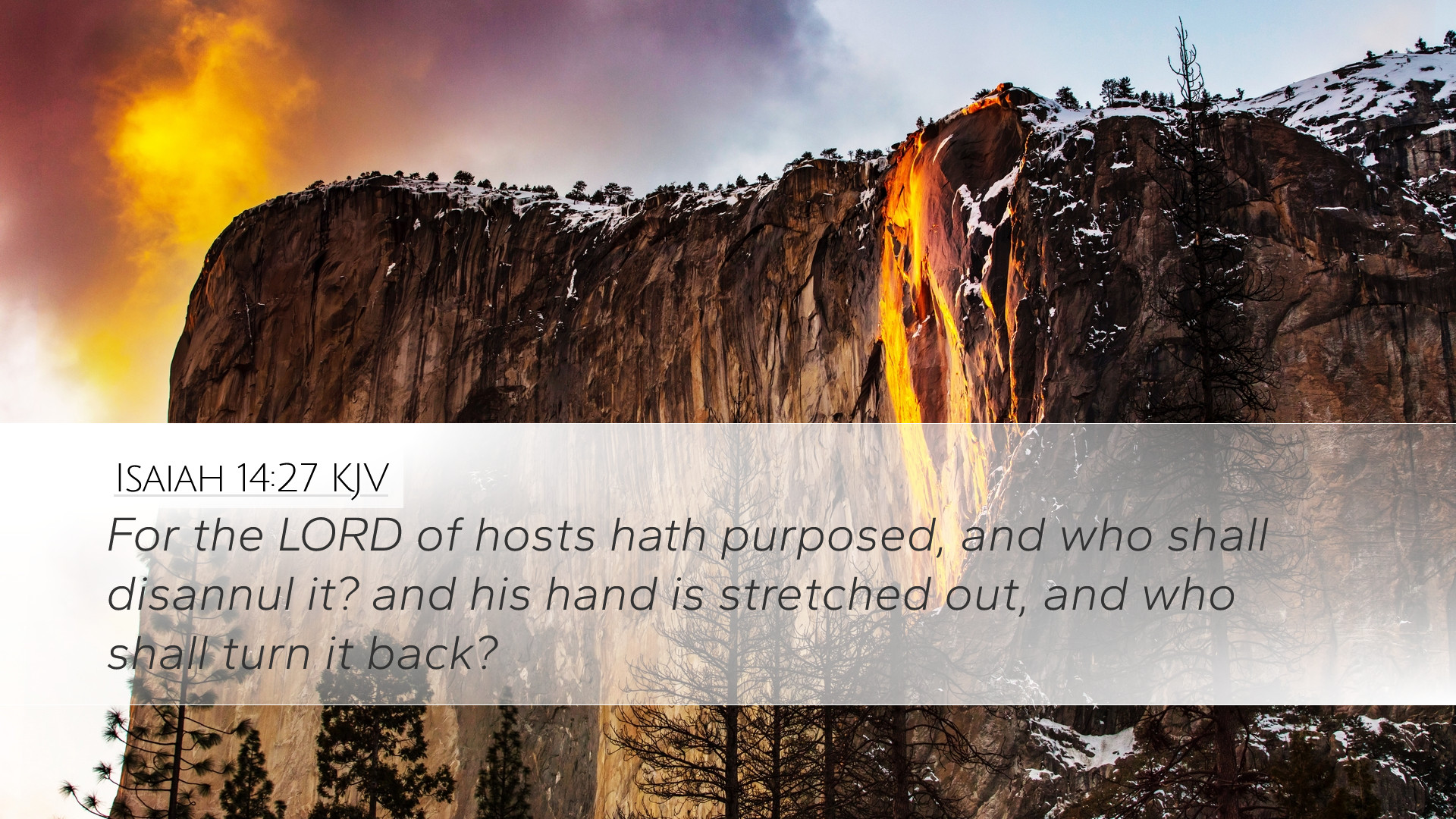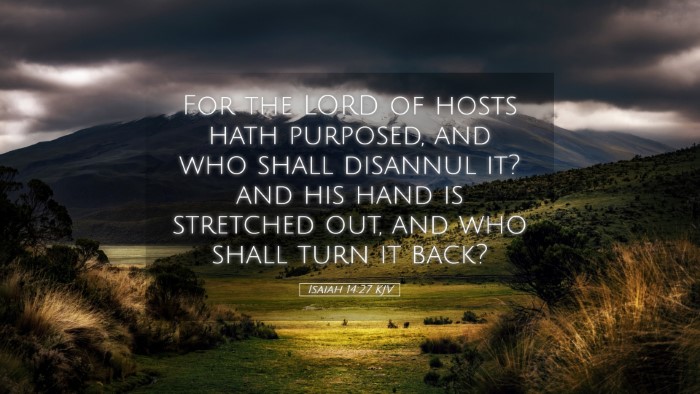Isaiah 14:27 - Commentary
The verse from Isaiah 14:27 states:
"For the Lord of hosts hath purposed, and who shall disannul it? And his hand is stretched out, and who shall turn it back?"
This verse encapsulates profound theological themes, primarily the sovereignty of God and His immutable will. Below, we summarize insights from prominent public domain commentaries to explore its depths.
Contextual Background
Isaiah 14 deals primarily with the proclamation of judgment against Babylon, a symbol of pride and rebellion against God. This chapter serves both as a warning and a promise of restoration for Israel.
The Sovereignty of God
According to Matthew Henry, the phrase "For the Lord of hosts hath purposed" asserts that God's plans are fixed and unchangeable. His sovereign authority dictates the course of history, challenging the arrogance who resist His will. God’s declaration that “who shall disannul it” emphasizes the futility of opposing divine intentions.
- God's Authority: Henry points out that the Lord of Hosts signifies God’s supreme power over all spiritual and temporal realms.
- Immutability of Purpose: Albert Barnes notes that once God has determined a course of action, no force in heaven or earth can alter it.
The Hand of God
In the latter part of the verse, "his hand is stretched out," signifies God's active engagement in the world. Adam Clarke emphasizes that this imagery suggests both power and mercy; while it reflects God’s might against His enemies, it also extends an invitation to His people for salvation and protection.
- Divine Intervention: Clarke elaborates that God’s hand is a metaphor for His ability to intervene in human affairs, demonstrating His control over nations and empires.
- Assurance for Believers: This extended hand is also a source of comfort for the faithful, indicating that God is intimately involved in the lives of His chosen.
Challenge to Opposition
The final phrase of the verse, "who shall turn it back," serves as a rhetorical question that reinforces the certainty of God's will. Both Barnes and Henry discuss the implications for those who oppose divine offerings or plans. No earthly authority or power can reverse God’s decisions.
- Opposition is Futile: Those who rise against God's will do so at their peril, as history showcases the downfall of empires that dared to contest divine authority.
- Encouragement for the Faithful: Conversely, this statement reassures the righteous that regardless of current circumstances, God’s purposes will ultimately prevail.
Theological Implications
This verse encapsulates significant theological principles regarding God’s sovereignty, His will, and the nature of human agency.
- Divine Sovereignty: The undeniable sovereignty of God fosters both reverence and awe among believers; it encourages them to trust in God’s plan even amidst turmoil.
- Human Responsibility: While acknowledging God’s sovereignty, there remains a call for human accountability, suggesting that believers must engage with God’s work actively.
Practical Applications
For pastors and theologians, this verse serves as a reminder of the ultimate authority of God in all aspects of life. Here are some applications:
- Preaching God's Sovereignty: Emphasize God’s control over events in sermons, encouraging congregations to find peace and security in divine providence.
- Encouragement in Trials: Use this verse to comfort individuals facing adversity, reminding them of God’s mighty hand at work for their benefit.
- Call to Faithfulness: Urge believers to engage in faithful service, knowing that their efforts contribute to the fulfillment of God’s purposes.
Conclusion
Isaiah 14:27 serves as a powerful declaration of God’s unassailable purpose and His sovereign authority. The combined insights from Matthew Henry, Albert Barnes, and Adam Clarke reinforce the unchanging nature of God's will and the comfort it brings to His people. This verse not only calls for reverence but also invites believers into a relationship of trust in their sovereign Lord.


